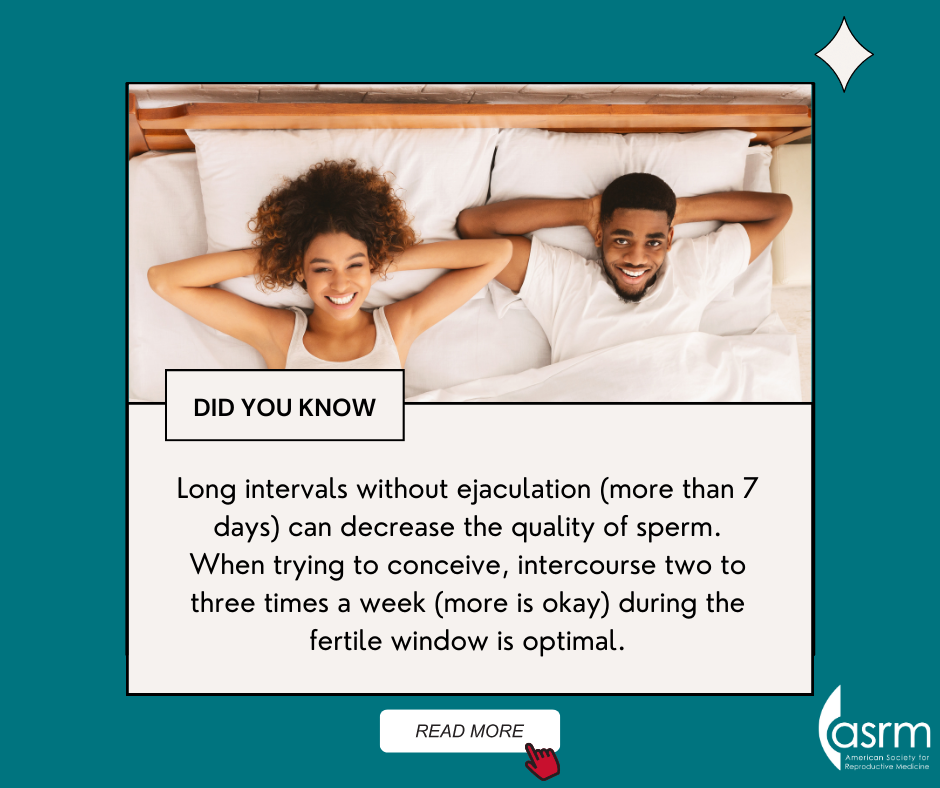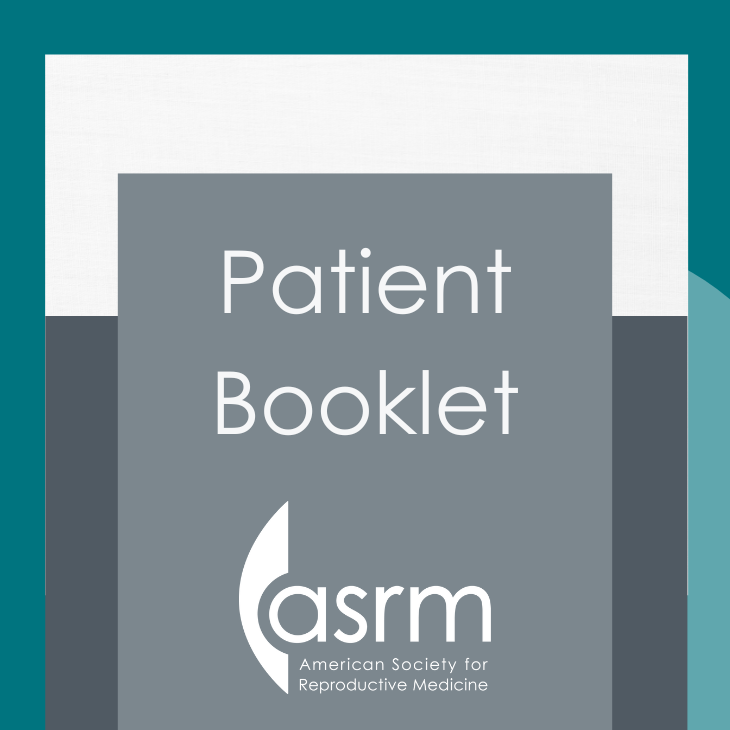Optimizing Male Fertility
Revised 2012
 WHAT ARE OUR CHANCES OF CONCEIVING?
WHAT ARE OUR CHANCES OF CONCEIVING?
The chance of a normal couple conceiving is 20% to 37% by three months, 75% by six months, and 90% at one year. Of those couples that do not conceive in the first year, as many as 50% will conceive in the next year. Couples that have tried without success to conceive should see a fertility specialist. About 20% of infertility cases are due to a male factor alone. Another 30% involves both male and female factors.HOW IS MALE FERTILITY EVALUATED?
The first way a doctor evaluates male fertility involves a physical exam and medical history. After that, semen is evaluated. The semen is normally collected in a sterile containter by masturbation. The semen test gives important information about the amount, movement, and shape of sperm. If the sperm count is normal and the sperm are of normal shape and moving normally, the man is most likely normal. If the results are abnormal, the sperm should be examined. Illness or medications three months earlier can impair sperm ejaculated on the day of examination. Hormone blood tests also may be used to help evaluate male fertility issues.HOW OFTEN SHOULD A COUPLE HAVE INTERCOURSE?
Surprisingly, long periods of abstinence can decrease the quality of sperm. Couples should have intercourse (sex) at least two to three times a week during the fertile period. A couple has more chances for pregnancy if they have intercourse every one to two days during the fertile window, and a pregnancy is most likely if a couple has intercourse within the six-day time frame that ends on the day that an egg is released (ovulation). ARE THERE COITAL (SEX) PRACTICES THAT CAN IMPROVE OUR CHANCES OF CONCEIVING?
ARE THERE COITAL (SEX) PRACTICES THAT CAN IMPROVE OUR CHANCES OF CONCEIVING?
Sperm ejaculated into the vagina reaches the fallopian tubes within minutes regardless of position during intercourse. Also, there is no evidence that orgasm or prolonged rest after intercourse increases the chance of conception. Some commercial lubricants and other substances used for lubrication such as saliva, olive oil and KY Jelly® should be avoided during the fertile period. They may make the sperm move slower and decrease their ability to survive. You may want to discuss lubricant choices with your doctor since there are a few lubricants that are believed to be safe for use when trying to conceive.DOES DIET AFFECT FERTILITY?
Obesity has been clearly linked to impaired sperm production. Overweight men interested in optimizing fertility should attempt to attain an ideal body weight. Antioxidants such as vitamins E and C are found in most multi-vitamins. They have been found to result in a slight increase in both sperm count and movement. Fruits and vegetables also provide a natural source of antioxidants and should be part of a balanced and healthy diet.WHAT ARE THE EFFECTS OF SMOKING AND RECREATIONAL DRUG USE?
Smoking is associated with reduced sperm quality. Men who are trying to conceive should consider stopping smoking immediately. Also, recreational drugs, including anabolic steroids and marijuana, are associated with impaired sperm function. They should not be used.ARE BOXERS SHORTS OR BRIEFS BETTER?
Some studies suggest that wearing brief underwear may raise the temperature around the scrotum and cause a decrease in sperm quality. Choosing boxer underwear is one way to avoid this. The evidence from these studies is inconclusive. Regardless, avoiding situations that raise scrotal temperature (like hot tubs or using laptops on your lap) might improve sperm quantity and quality. Some medications, along with chronic medical conditions and high fevers, may impair the body’s ability to make sperm. Ask your doctor how your medications or conditions affect your fertility potential.HOW CAN I IMPROVE OUR CHANCES OF CONCEIVING NATURALLY?
Like many aspects of our health, a man’s fertility is improved by adopting a healthy lifestyle. Maintaining an ideal weight, a diet rich in antioxidants (found in fruits and vegetables), as well as multi-vitamins may improve the quality of sperm. Reducing stress and controlling chronic medical conditions such as high blood pressure and diabetes may also improve a man’s chances of impregnating his partner. Remember that any such changes in the man’s lifestyle will take almost three months to show an improvement in sperm. Couples with underlying medical or genetic conditions should see a doctor so that they can increase their overall health before conceiving.Find a Health Professional
Connect with reproductive medicine experts who will guide you through your unique journey. Our search tool allows personalized matches based on location, specialization, and expertise. Take control of your reproductive health with compassionate providers, innovative treatments, and unwavering support.
Search for an Expert
Fact Sheets/Booklets
View more fact sheets and booklets written by the ASRM Patient Education Committee.
Assisted Reproductive Technologies (booklet)
This booklet will help you understand in vitro fertilization (IVF) and other assisted reproductive technology (ART) that have become accepted medical treatments for infertility.
Hormonal Contraception
Hormonal contraceptives contain a progestin (progesterone medicine) with or without an estrogen.
What do I need to know about Zika virus and trying to have a baby?
Common symptoms include fever, rash, joint pain, conjunctivitis (red eyes), muscle pain, and headache.











